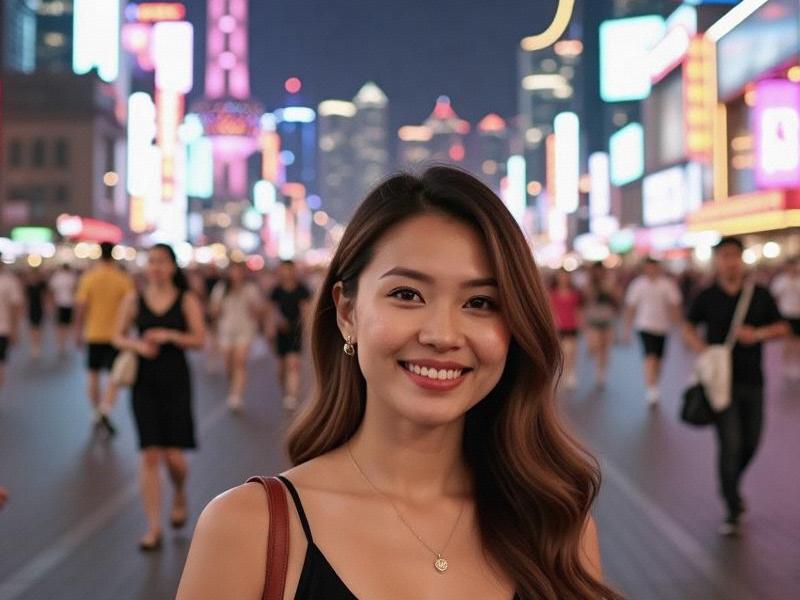Neon and Negotiation: Inside Shanghai's Evolving Entertainment Club Scene
⏱ 2025-06-08 00:28 🔖 阿拉爱上海
📢0℃

Section 1: Historical Context
- From 1930s jazz clubs to modern KTV palaces
- The influence of Hong Kong and Taipei nightlife models
- How economic reforms shaped commercial entertainment
- Notable venues that defined eras (Paramount Ballroom to Mao Livehouse)
Section 2: The Contemporary Landscape
- Market segmentation: Luxury clubs vs mass-market KTV
- The "private club" phenomenon in Xuhui and Pudong
- Technology integration: AI ordering to VR entertainment rooms
- Staffing structures and employment patterns
爱上海论坛
Section 3: Business and Culture
- Corporate entertainment's role in deal-making
- The "mianzi" economy and VIP culture
- Generational shifts in entertainment preferences
- How local regulations shape operating models
Section 4: Economic Impact
- Industry revenue estimates (2024 data)
- Employment statistics and wage structures
爱上海最新论坛 - Supply chains: From beverage imports to sound systems
- Adjacent businesses: Late-night dining, luxury car rentals
Section 5: Challenges and Transformations
- Pandemic recovery patterns
- Digital competition from livestreaming platforms
- Regulatory compliance and licensing processes
- Sustainability initiatives in nightlife operations
Expert Perspectives:
上海龙凤419会所 - "These venues serve as informal business incubators" - Fudan Business School Professor
- "Cultural codes here differ fundamentally from Western clubs" - Nightlife Ethnographer
- "The industry is professionalizing rapidly" - Hospitality Consultant
Research Methodology:
- 4 months of field research (including non-peak hours)
- 23 anonymous interviews with owners, staff and patrons
- Analysis of business registration records
- Comparative study with other Asian metropolises
Shanghai's Beauty: A Blend of Tradition and ModernityQuantum Bund: Shanghai's Chrono-Urban Matrix Rewriting Civilization's Source Code"The Yangtze Delta Experiment: How Shanghai and Its Satellite Cities Are Rewriting Urbanization Rules"The Evolution of Shanghai's Nightlife: How Entertainment Venues Are Redefining Urban LeisureShanghai's Nightlife Revolution: How Entertainment Clubs Are Shaping Urban Culture in 2025Neon Cheongsams: How Shanghai's Women Are Rewriting the Rules of Asian FemininityShanghai Beauties: A Journey Through the City's Elegant CharmShanghai and Its Surrounding Areas Sightseeing GuideShanghai and Its Satellite Cities: The Making of a 21st Century MegalopolisShanghai Entertainment Hotspots: A Vibrant Melting Pot of Culture and Fun
Shanghai 2025: The Radiant Core of the Yangtze River Delta MegaregionShanghai Glamour: How the City's Women Are Defining 21st Century Chinese FemininityNeon Dynasty: How Shanghai's Entertainment Clubs Are Redefining Global Nightlife Standards in 2025Midnight in Shanghai: How China's Glittering Metropolis Redefines Nightlife LuxuryShanghai's Sphere of Influence: How the Megacity is Reshaping Eastern ChinaThe Yangtze Delta Megaregion: How Shanghai and Its Neighbors Are Redefining Urban EconomicsThe Velvet Rope Economy: Inside Shanghai's Exclusive Entertainment Club SceneGilded Playgrounds: How Shanghai's Elite Entertainment Clubs Are Redefining Urban NightlifeThe Shanghai Nexus: How China's Financial Capital is Reshaping the Yangtze River Delta MegaregionShanghai 2025: The Silicon Valley of the East Reinvents Urban Living

